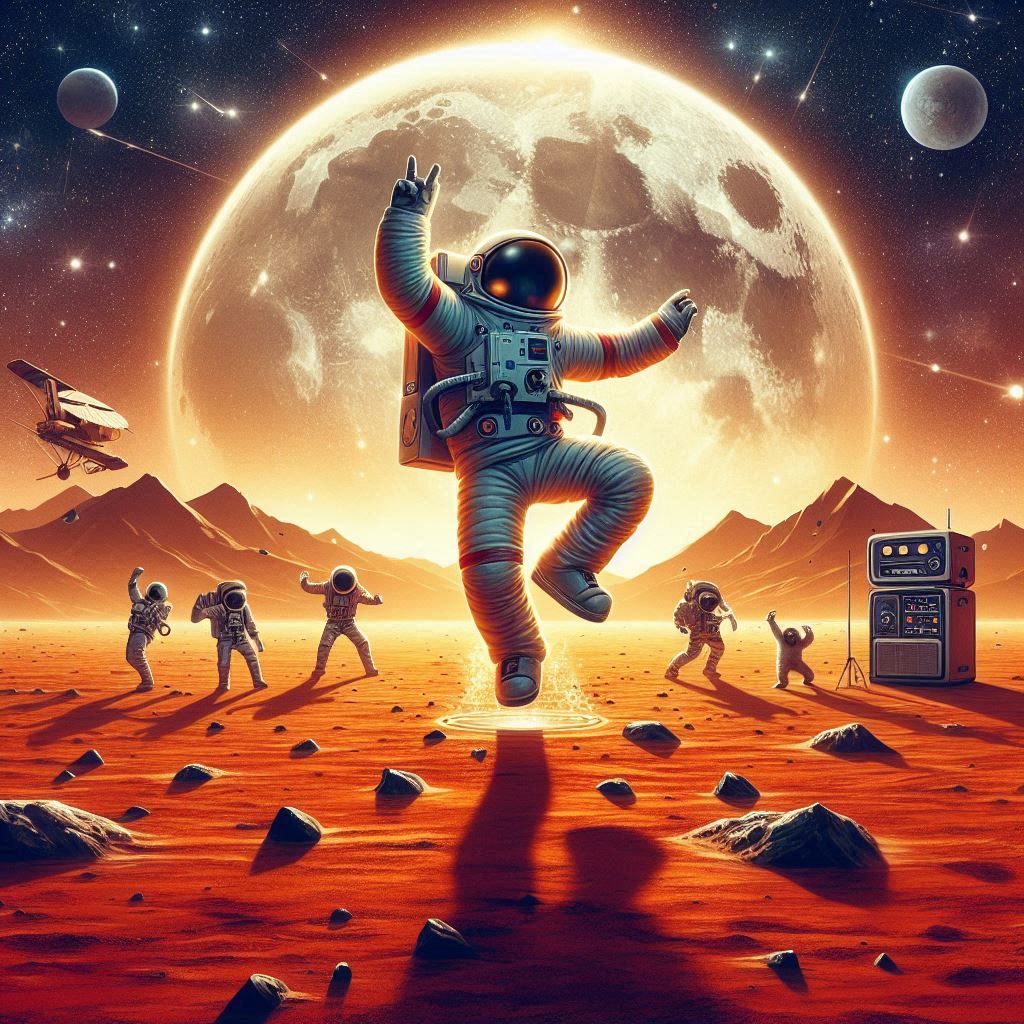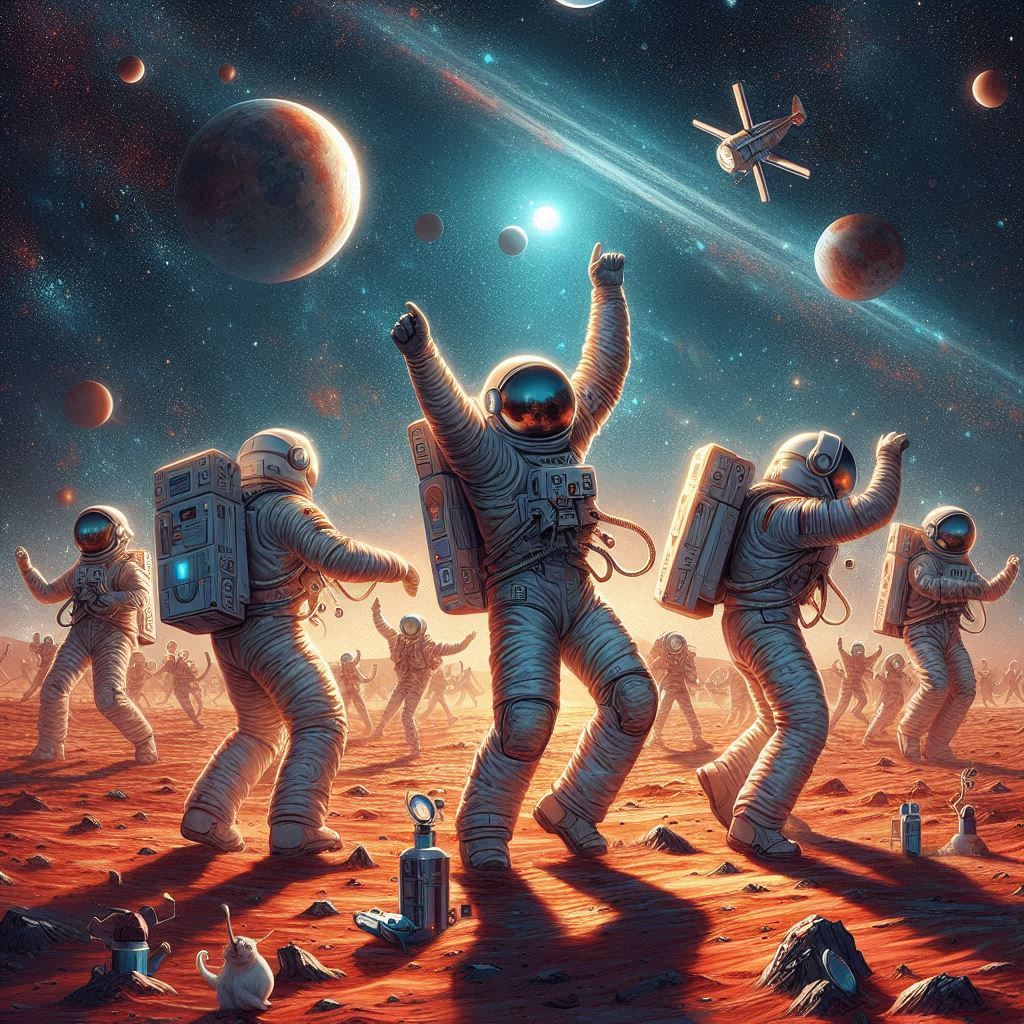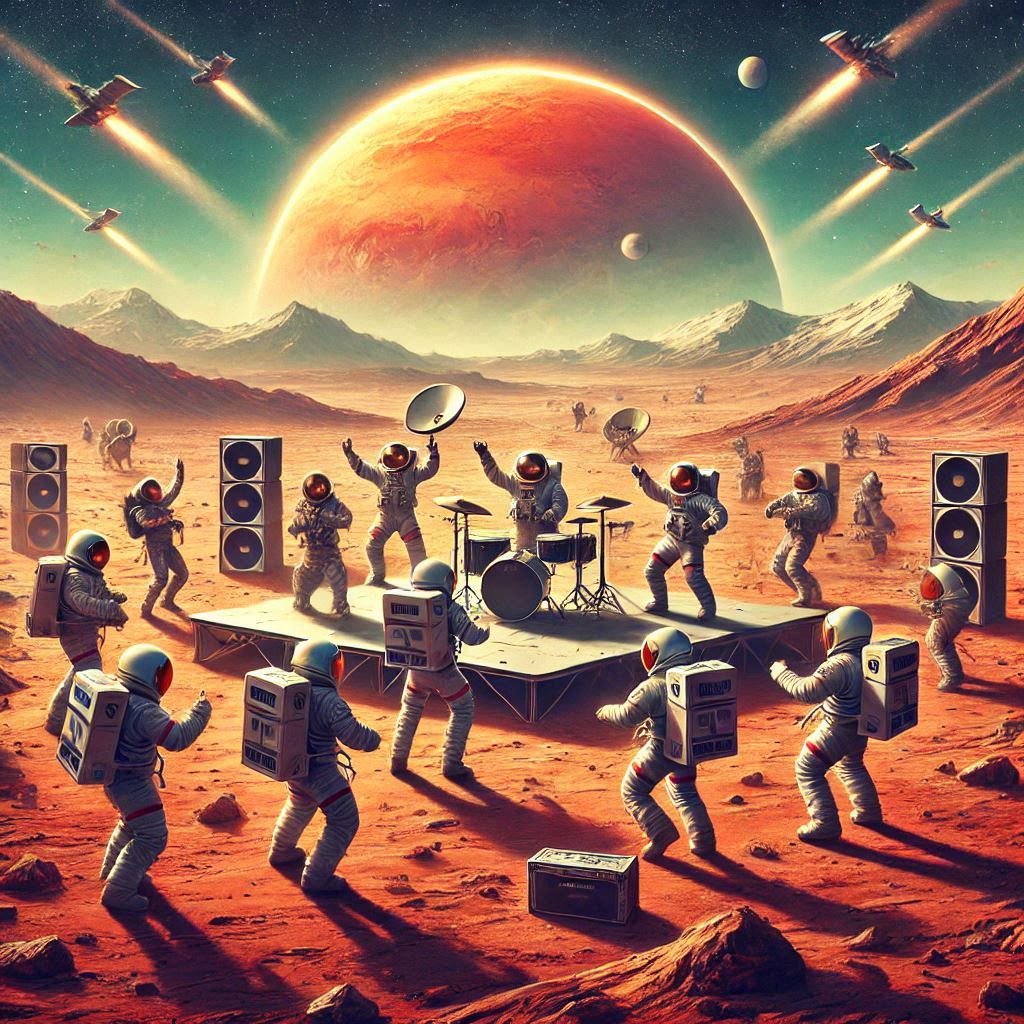It was a crisp, red evening on Mars, and the astronauts aboard the Mars Exploration Station were feeling a bit stir-crazy. The dust storms had passed, the oxygen tanks were full, and their mission had been successful. But there was one thing that no amount of data or research could cure—boredom. The crew of four, all seasoned space explorers, had spent weeks in the confines of their high-tech habitat. They missed Earth, their homes, their favorite foods, and—most importantly—dancing.
Commander Luna, the mission leader, had been the first to suggest it. “What do you think, team?” she asked, grinning behind her helmet’s visor. “Mars needs a dance party.”
The others, though initially hesitant, soon warmed to the idea. There was something undeniably exciting about the thought of dancing under the vast, orange sky of Mars. The crew made a quick plan: they would put on their spacesuits, carry their music system outside, and throw the first-ever dance party on the Martian surface.
With the sound of crackling energy shields, they exited the habitat one by one, stepping onto the dusty red soil. Their boots made soft crunching noises as they set up a small, portable speaker—their one piece of Earth’s musical technology. It was a big step for humanity: a dance party on Mars, thousands of miles away from home.
Luna was the first to press "play." As the speakers hummed to life, the sound of upbeat dance music filled the cold Martian air. The beat was strange and distant, like a memory from Earth. But it was just enough to get the crew moving.
Astronaut Nova, the mission’s engineer, was the first to break into a moonwalk. The low gravity of Mars made her movements lighter, more fluid, and she glided across the surface like a ballerina. "This feels like a dream!" she laughed as she twirled, her space boots skidding gracefully in the red dust.
Next came Astronaut Atlas, the biologist, who had never considered himself much of a dancer but couldn’t resist the infectious energy of the moment. He started with a few awkward steps, but soon, he was shaking his hips and making Mars-specific moves, calling them “the Martian Shuffle.” "I think we just invented a new dance move!" he cheered.
Engineer Sol, always the practical one, was hesitant at first. But the others were too caught up in the fun. Slowly, he began to let loose, performing an interpretive dance where his limbs seemed to float in the reduced gravity. His movements were slow but mesmerizing, as if he were moving in water instead of on solid ground.
Luna watched her crew, grinning from behind her helmet. Her heart swelled with pride. They were on Mars. They had achieved the impossible, and now they were dancing. The red planet felt a little warmer, a little more like home, with every beat.
As the music pulsed through the speakers, a strange phenomenon began to happen. The swirling Martian dust, stirred by the movement of the astronauts, started to form little dancing spirals in the air. It was like the planet itself had joined the party, swirling in sync with the astronauts’ movements.
They danced until their energy reserves began to deplete, until their helmets fogged with laughter and their suits glistened with sweat. The party didn’t last long, but in that moment, it didn’t need to. It was a reminder that even on the barren surface of Mars, amidst all the challenges and isolation, humanity could still find joy.
As the music slowed and the last beat faded into the silent Martian night, the astronauts stood together, looking up at the distant stars. They had just made history in the most unexpected way—by simply dancing, as if the universe itself was celebrating with them.
“Best. Party. Ever,” Nova said with a satisfied sigh.
“Agreed,” Atlas grinned. “I think Mars needs more dance parties.”
Luna laughed, nodding. “I think you’re right. But next time, we bring a disco ball.”
And with that, the astronauts returned to their habitat, their hearts light, knowing that they had shared a piece of Earth with the red planet, one dance move at a time.





